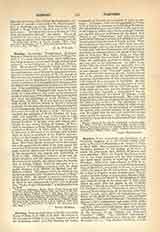

Fleming (FLEMMING, FLEMMYNGE), RICHARD, Bishop of Lincoln and founder of Lincoln College, Oxford; b. of a good Yorkshire family about 1360, Croston being sometimes mentioned, though without clear authority, as his birthplace; d. at Sleaford, January 25, 1431. He studied at University College, Oxford, and became junior proctor in 1407. In 1409 he was chosen by convocation as one of the twelve commissioners appointed to examine the writings of Wyclif, though at this time he was suspected of sympathy with the new movement and is mentioned by name in a mandate which Archbishop Arundel addressed to the chancellor in 1409 in order to suppress this tendency in the university. If the archbishop’s description is correct the date usually assigned for Fleming’s birth must be far too early, for a man close on fifty could not be mentioned as one of a company of beardless boys who had scarcely put away the playthings of youth (Wilkins, Conc. Magn. Brit., III, 322). If he ever had any sympathy with Wyclif it did not extend to Wyclif’s heretical doctrines, for his own orthodoxy was beyond suspicion and it subsequently became his duty as bishop to burn the exhumed body of Wyclif in 1428. He held successively the prebends of South Newbald (August 22, 1406) and Langtoft (August 21, 1415), both in York Diocese, and subsequently was rector of Boston. He became bachelor in divinity some time before 1413. Finally he was elected Bishop of Lincoln, November 20, 1419, in succession to Philip Repyngdon, and was consecrated at Florence, April 28, 1420. In 1422 he was in Germany at the head of an embassy, and in June, 1423, he acted as president of the English representatives at the Council of Pavia, which was transferred to Siena and finally developed into the Council of Basle. More than once he preached before the council, but as he supported the rights of the pope against the assembled Fathers his views were disapproved of. The pope, however, showed him favor by appointing him as his chamberlain and naming him Archbishop of York in 1424. Difficulties, however, arose with the king’s ministers, and the appointment was set aside. On returning to Lincoln, the bishop began the foundation of Lincoln College, which he intended to be a collegiolum of theologians connected with the three parish churches of St. Mildred, St. Michael, and All-hallows, Oxford. The preface which he wrote to the statutes is printed in the “Statutes of Lincoln College” (Oxford, 1853). He proved a vigorous administrator of his diocese, and added to his cathedral a chantry in which he was subsequently buried. One work now lost, “Super Angliae Etymologies”, is attributed to him by Bale.
EDWIN BURTON

